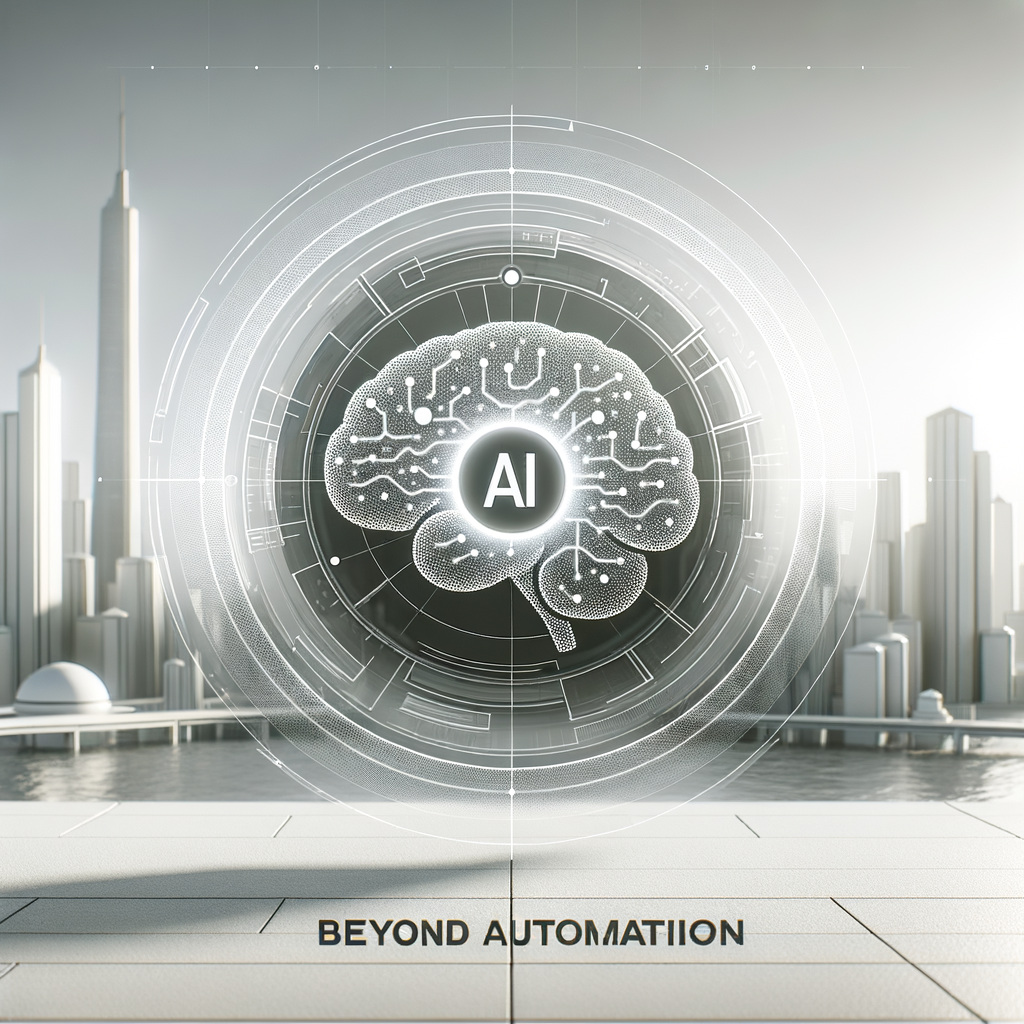
Beyond Automation: Exploring the Future of Adaptive AI in Real-World Applications
Dive into the transformative potentials of adaptive AI systems across various industries. This blog delves deep into the practical applications and future opportunities that adaptive AI presents, from improving customer experiences to revolutionizing operational efficiencies. Discover how adaptive AI is different from traditional smart systems and why it stands at the forefront of the next AI revolution.
Introduction
In the current technological landscape, artificial intelligence is not a mere buzzword, but a transformative force reshaping industries, enhancing customer experiences, and streamlining operations. However, the real game-changer is 'adaptive AI,' a concept that's steadily gaining momentum in real-world applications. Adaptive AI is designed not just to perform static tasks but to learn, evolve, and improve over time with minimal human intervention. This article explores how adaptive AI is outpacing traditional smart systems in solving complex, dynamic problems across different sectors.
What is Adaptive AI?
Adaptive AI refers to intelligent systems that are dynamic, continuously learning from new data, adapting to changes, and improving their decision-making processes autonomously. Unlike static AI systems that rely on predefined algorithms, adaptive AI utilizes machine learning models that evolve over time, making them ideal for environments that are unpredictable or rapidly changing.
Real-World Applications of Adaptive AI
-
Customer Service Transformation
Adaptive AI is revolutionizing customer support through personalized interactions and proactive problem-solving capabilities. These systems can evolve with user interactions, refine responses, and enhance customer satisfaction by predicting future needs.
-
Industrial Optimization
In manufacturing, adaptive AI helps in anticipating equipment failures, reducing downtime, and optimizing supply chains. By analyzing vast amounts of data from operational systems, adaptive AI can suggest process improvements that a static AI might miss.
-
Financial Market Predictions
Financial institutions are leveraging adaptive AI to predict market trends more accurately. As these systems ingest real-time data, they adapt to market changes faster than traditional models, offering more precise investment recommendations.
-
Healthcare Innovations
By integrating adaptive AI into healthcare, medical providers can enhance patient care through predictive diagnostics, personalized treatment plans, and efficient management of healthcare resources.
-
Smart Cities Development
Urban planners are using adaptive AI to make smart cities more responsive to citizens' needs. It supports dynamic traffic management, efficient energy distribution, and personalized public services.
Challenges and Considerations
While adaptive AI promises revolutionary benefits, it also presents significant challenges. Ensuring data integrity, managing the complexity of AI models, and addressing ethical implications of autonomous decision-making are crucial. Organizations must invest in robust AI governance frameworks to mitigate risks.
The Future of Adaptive AI
As adaptive AI continues to evolve, it is set to integrate more deeply into various technological ecosystems, enhancing their scalability and efficiency. Research and development in areas like meta-learning and neuromorphic computing will likely propel adaptive AI forward, making it a cornerstone of future innovations.
Conclusion
Adaptive AI represents a significant shift from traditional AI systems, offering dynamic learning and decision-making capabilities that promise to unlock new potentials across industries. As we continue to advance, the emphasis on adaptive AI will foster a thoughtful approach to technological growth, emphasizing not just efficiency and innovation, but also responsibility and ethics.
Stay tuned as we continue to explore how adaptive AI will shape the future technological landscape in unprecedented ways.